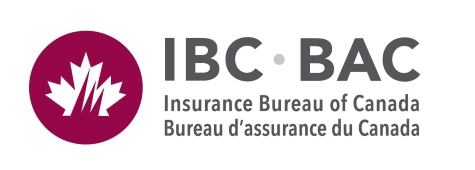Tips to protect Albertans and their property when severe weather strikes
IBC promotes action during Emergency Preparedness Week
EDMONTON, May 5, 2014 /CNW/ - Severe weather – heavy rainfall, flooding, hail, tornadoes and wildfires– can strike suddenly and with devastating consequences for communities and residents.
As Emergency Preparedness Week begins, Insurance Bureau of Canada (IBC) offers suggestions for how Albertans can protect themselves, their homes and businesses from the effects of severe weather, which is on the rise across Canada.
"Weather events that used to happen every 40 years can now happen every six years. As a result, homes and business properties are damaged more frequently. But property losses are only part of the picture. The human toll of extreme weather events is incalculable," says Bill Adams, IBC Vice-President, Western and Pacific.
In an average year, the Canadian insurance industry pays approximately $1.7 billion in claims due to water damage. The flooding in Alberta last June was the costliest natural disaster in Canadian history and resulted in more than $1.7 billion in insured losses for that event alone. Hail storms have also had a serious impact in Alberta. In 2012, severe storms resulting in $500 million in claimed damages. In 2011, storms and hail accounted for another $240 million in damages.
"The insurance industry is on the front lines when weather disasters strike and understands their impact on Canadians. IBC is committed to helping families get the information they need to protect themselves and their property," he adds.
IBC suggests these helpful severe weather preparedness tips:
Here are precautions to take immediately:
- Assemble an emergency kit – flashlight and batteries, battery-operated radio etc.
- Move valuable items from your basement to higher levels in your home.
- Clear eavestroughs and downspouts – if safe to do so – and direct water away from your home.
- Ask someone to check your property if you are away.
Also, commit to taking these precautions:
- Create an emergency preparedness plan for your family.
- Prepare a detailed home inventory. This can be done as photos or video.
- Install a sump pump and/or sewer backup valve.
- Elevate furnaces, hot water heaters and electrical panels in the basement or relocate them to a higher level.
- Check with your insurance representative to make sure you have appropriate coverage.
"IBC has made adapting to severe weather a priority," says Adams. "We're spreading the word on the need to update infrastructure, to engage consumers on how to protect themselves and their properties, and to work with all three levels of government to help develop, promote and implement adaptation measures."
For insurance-related questions, consumers can contact IBC's Consumer Information Centre at 1-877-772-3777 or visit www.ibc.ca
About Insurance Bureau of Canada
Insurance Bureau of Canada (IBC) is pleased to celebrate 50 years as a valuable resource for insurance information. Since 1964, IBC has been working with governments across Canada to make our communities safer, championing issues that directly affect Canadians and the property and casualty (P&C) insurance industry. IBC is the national industry association representing Canada's private home, car and business insurers. Its member companies represent 90% of the P&C insurance market in Canada. The P&C insurance industry employs over 118,600 Canadians, pays more than $7 billion in taxes and levies to the federal, provincial and municipal governments, and has a total premium base of $46 billion.
To view media releases and other information, visit the media section of IBC's website at www.ibc.ca. Follow IBC on Twitter @InsuranceBureau or like us on Facebook.
If you require more information, IBC spokespeople are available to discuss the details in this media release.
SOURCE: Insurance Bureau of Canada

To schedule an interview, please contact: Steve Kee, Director, Media & Digital Communications, Insurance Bureau of Canada, 416-362-2031 X4387, [email protected]

Share this article